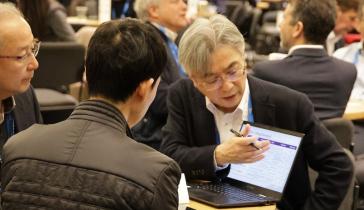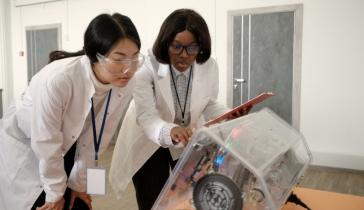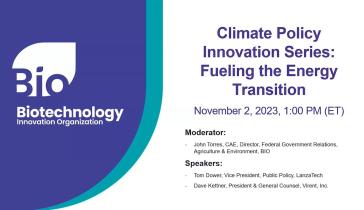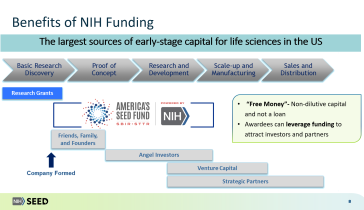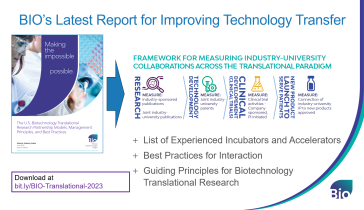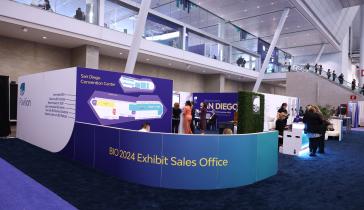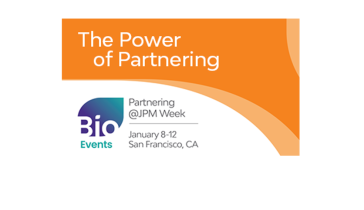January 27, 2026
Speakers: Mackensie Vernetti
Get ready to take your business development strategy from the boardroom to the beach at the BIO Investment & Growth Summit, happening March 2–3, 2026, in sunny Miami Beach!Before you pack your sunglasses, join Mackensie Vernetti, BIO’s Vice President of Partnering, for a…

February 26, 2026
Speakers: Michael King, Ron Baker
Get the inside track on oncology investment and partnering trends following JPM Week. Our panelists will highlight the most important oncology updates coming out of San Francisco and share what to expect heading into BIO Partnering for Oncology (May 29–June 2, 2026, in Chicago),…
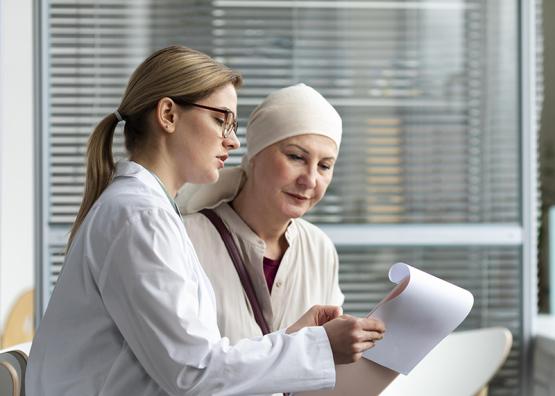
April 16, 2026
Speakers: Mackensie Vernetti
The 2026 BIO International Convention is Driven by Purpose—united by our shared mission to push boundaries, solve the impossible and achieve better outcomes for patients, public health, and the world. In that same spirit, BIO Partnering™ is designed to help you turn that purpose…


Every year, JPM Healthcare Week sets the pace for biotech deal-making. But the skills and insights you gain from preparing for high stakes partnering meetings are valuable long after January. In this webinar, a panel of investors and biotech executives will share what makes a pitch stand out, common pitfalls to avoid and practical guidance you can use not just at JPM Week, but at events like the BIO Investment & Growth Summit (March 2-3, Miami Beach) and other partnering opportunities throughout the year. Learn how to register for BIO events at this link.
This webinar features:
- Strategies and tips for making the most of your time during JPM Week
- Methods for improving your partnering meetings
- How to access the BIO and Novateur Ventures JPM Week Events Guide mobile app
- What to expect at the 2026 BIO Investment and Growth Summit
- Live Q&A with the speakers

In September 2025, the U.S. FDA launched a major enforcement campaign targeting direct-to-consumer (DTC) pharmaceutical advertising that misleads patients or downplays risks. Following a September 2025 presidential directive, the agency announced hundreds of enforcement actions—including over 100 cease-and-desist letters—signaling a zero-tolerance stance toward unbalanced or deceptive ads. While most of the letters focused on DTC content, FDA also sent letters for health care provider (HCP) promotion. The message: Government scrutiny and enforcement will significantly increase for biopharma as well as medical device promotion. This webinar includes regulatory compliance and drug advertising compliance experts who dissect the FDA’s mindset and ways to proactively mitigate concerns.
In this webinar, panelists:
– Drill down into FDA’s renewed enforcement areas
– Dissect the implications of increased enforcement on the industry
– Identify specific cases that are clear examples for company concern
– Isolate the key principles for avoiding violations and demonstrating good faith
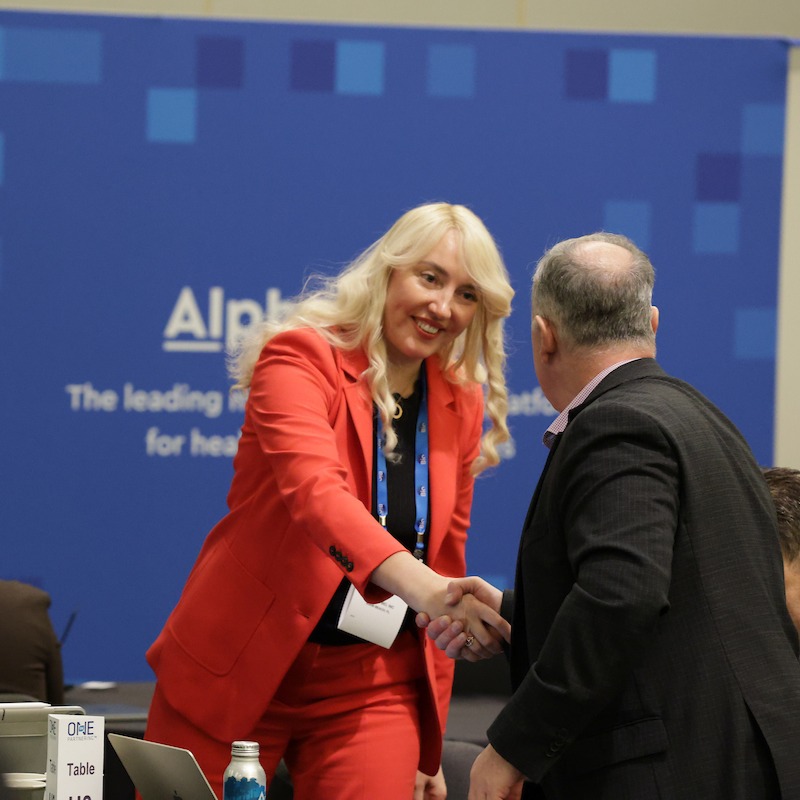
BIO is back at the San Francisco Marriott Marquis for JPM Week 2026—now powered by the new BIO Partnering™ system with major upgrades to help you connect more efficiently.
View this webinar to see how the overhauled self-scheduling tools and exciting new features—like AI Assist for generating tailored meeting request messages—can help you source new partnerships and manage your JPM Week meetings with ease. Learn about BIO’s onsite meeting space in San Francisco, tips and tricks for maximizing the system and how to schedule across various location options. Plus, find out how to stay in-the-know on networking events and other opportunities throughout JPM Week.
This webinar covers:
- Preview of BIO’s onsite meeting space in San Francisco
- Partnering best practices & how to schedule your meetings
- Live demo of the new BIO Partnering system & advanced features
- Intro to BIO and Novateur Ventures’ JPM Week Events Guide mobile app
- Q&A with the host
Learn more and register at https://bpjw.bio.org/

Rising service agreement costs and shrinking support from original equipment manufacturers (OEMs) have created a growing challenge for life science organizations. Many labs are stuck juggling multiple contracts, vendors, and renewal cycles — losing both time and money along the way.
This webinar explores an alternative approach: centralizing lab equipment service events under one provider. You’ll hear from experts at SU Group, a company with decades of actuarial data on lab equipment performance, and from Joe Dragavon, Director Core Facilities and Shared Instrumentation & Research and Innovation Office Director, Advanced Light Microscopy Core BioFrontiers Institute, who successfully implemented this model and realized both cost savings and efficiency gains.
Attendees will walk away with:
- A clear understanding of the challenges with today’s service agreement landscape
- An introduction to a centralized, data-driven model for managing equipment service
- A real-world example of how this model works in practice and the benefits achieved
- Practical considerations for evaluating whether this approach is right for your organization

Wrap up the week with an executive overview of BIO Business Solutions and a deep dive with our flagship partner, Avantor. Learn how the program delivers ongoing value and discover exclusive offers and procurement strategies available to BIO members.
Agenda Overview:
- BIO Business Solutions Overview by BIO Vice President of Business Development, Jeff Vallerga
- Avantor – Learn how to drive purchasing efficiency and lab performance with one of the life science industry's leading suppliers. From everyday consumables to capital equipment, discover how member companies leverage Avantor’s flagship program for exclusive pricing, custom sourcing support, and supply chain optimization.
- Q&A
- Closing Remarks & Next Steps
BIO Business Solutions® is the largest cost-savings program for the life sciences industry, leveraging the collective buying power of thousands of member companies to deliver exclusive pricing on lab supplies, insurance, office essentials, and more, all at no additional cost to members.

Optimize day-to-day operations with cost-saving insights from leaders in office supplies, logistics, and travel. Hear from ODP and Corporate Traveler on how to stretch your budget while supporting your team’s productivity and mobility.
Agenda Overview:
- BIO VP of Business Development, Jeff Vallerga kicks off the session with practical ways BIO members can unlock value and savings through BIO Business Solutions.
- ODP Business Solutions – Explore recently enhanced savings on everyday office and facility supplies, plus flexible procurement options that fit the way your team works.
- Corporate Traveler – Learn how to simplify travel planning and reduce costs with personalized travel management services built for biotech teams.
- UPS Healthcare – Discover streamlined shipping and logistics solutions tailored for life sciences—from regular and small package shipping to cold chain support and customs expertise.
- Live Q&A
- Closing Remarks
BIO Business Solutions® is the largest cost-savings program for the life sciences industry, leveraging the collective buying power of thousands of member companies to deliver exclusive pricing on lab supplies, insurance, office essentials, and more, all at no additional cost to members.

From secure data sharing to executive expertise and workflow automation, this session highlights the digital and strategic tools that help life science companies scale efficiently. Presentations from ShareVault, PSC Software, and BiotechExec will showcase real-world use cases and member-driven results.
Agenda Overview:
- BIO Business Solutions Overview – unlocking value and savings
- ShareVault – Learn how secure document sharing can accelerate due diligence, streamline fundraising, and safeguard your most critical files.
- PSC Software – Discover how intuitive, scalable platforms like ACE Starter support end-to-end audit workflows, reduce risk, and boost productivity.
- BiotechExec – See how executive-level, fractional leadership can fill critical talent gaps and provide strategic direction for growing companies.
- Live Q&A
- Closing Remarks
BIO Business Solutions® is the largest cost-savings program for the life sciences industry, leveraging the collective buying power of thousands of member companies to deliver exclusive pricing on lab supplies, insurance, office essentials, and more, all at no additional cost to members.
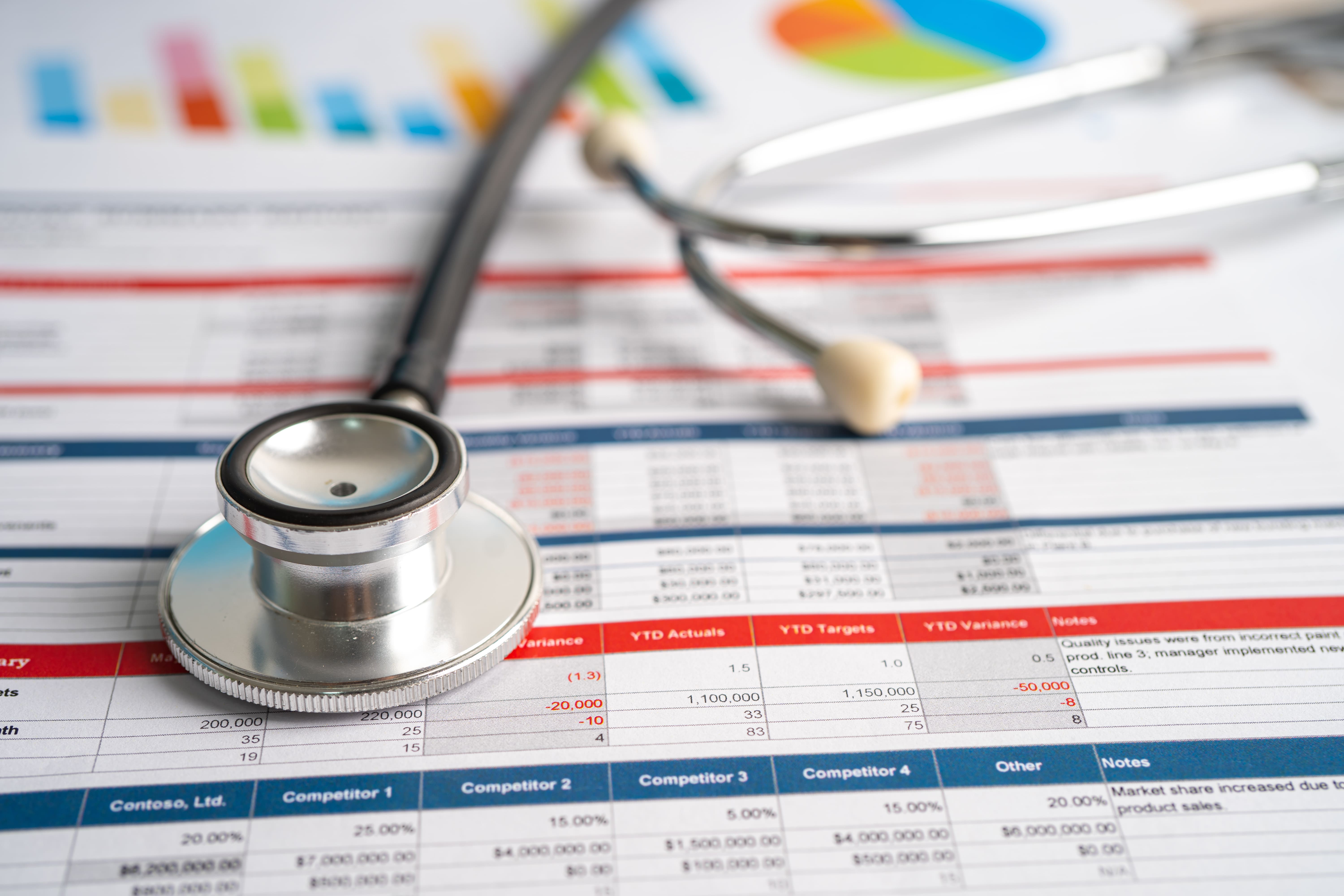
Explore financial and HR services that empower life science companies to grow with confidence. Hear from Brex, Aon Risk, and ADP R&D Tax Credit on how to simplify expense management, access turnkey HR support, and capitalize on valuable tax credits.
Agenda Overview:
- BIO Business Solutions Overview - unlocking value and savings.
- Brex – Discover how to streamline company spending and optimize your financial runway with powerful, founder-friendly tools.
- ADP Tax Credits – See how your company’s activities may qualify for valuable federal R&D tax credits and how ADP can help you claim them.
- Aon Risk Insurance – Learn how to manage risk across the life sciences enterprise, from directors & officers (D&O) insurance to data privacy, cyber liability, and clinical trial protection.
- Live Q&A
- Closing Remarks
BIO Business Solutions® is the largest cost-savings program for the life sciences industry, leveraging the collective buying power of thousands of member companies to deliver exclusive pricing on lab supplies, insurance, office essentials, and more, all at no additional cost to members.

Explore lab optimization strategies, streamlined contract consolidation, and how to connect with the right experts for regulatory submissions and audit readiness. Hear from American Laboratory Trading (ALT), SU Group, and PSC Biotech as they present cost-effective approaches to enhancing lab operations and ensuring compliance at every growth stage.
Agenda Overview:
- BIO VP of Business Development kicks off the session with practical ways members can unlock value and savings through BIO Business Solutions.
- American Laboratory Trading (ALT) – Discover the benefits of sourcing refurbished lab equipment to lower capital costs while maintaining quality and performance.
- SU Group LLC – Learn how to consolidate equipment service contracts for greater efficiency, cost control, and vendor management.
- PSC Biotech – Get insights into tailored consulting support for regulatory planning, audit readiness, and quality systems implementation.
- Live Q&A
- Closing Remarks
BIO Business Solutions® is the largest cost-savings program for the life sciences industry, leveraging the collective buying power of thousands of member companies to deliver exclusive pricing on lab supplies, insurance, office essentials, and more, all at no additional cost to members.

Join Thermo Fisher Scientific for an exclusive webinar introducing a transformative approach to biologics development and clinical scale-up. Their "Path to IND for Biologics" method accelerates the journey from DNA to IND/IMPD submission and first-in-human clinical trials in as few as 9 months. Dr. Elena Gontarz, a leading expert in the biologics industry, will guide you through this innovative process, leveraging AI/ML, transposase technology, and integrated solutions during the session: "Path to IND for Biologics: From DNA to First-in-Human in 9 Months." Following the presentation, Dr. Gontarz will answer audience questions and discuss how these novel strategies can streamline the development of complex biologics, such as Fc-fusion proteins and bispecific antibodies, driving them swiftly from development to commercialization.
Get a sneak peek on this novel platform
Terms and Conditions: Titer levels provided are estimates based on third party results and may vary depending on molecule type or other factors. Timeline from DNA to drug product and start of clinical trials for all path to IND for biologics options may vary depending on molecule type or other factors and are estimates to be finalized after third party cell line development dates are available and confirmed. 9-month timeline will incur additional risk.
Learn more about Dr. Elena Gontarz's expertise and background:

View this webinar for an in-depth exploration of today's complex global market landscape. This panel will address the challenges of launching new therapies in multiple countries, focusing on early decision points for risk mitigation and maximizing supply chain resiliency. Discover how Cencora's global capabilities and flexible solutions can strengthen supply chain resilience amidst evolving challenges.
Moderator: Sandra Anderson, Senior Vice President Commercialization, Cencora
Panelists:
- Glenn Pauly, Chief Commercial Officer, Alzheon
- Graham Goodrich, Chief Commercial Officer, Apnimed
- Leigh Shultz, PhD, Associate Vice President & International Head of Trade Channel Strategy & Enablement, Merck & Co.
- Kevin McDermott, Vice President International Commercialization, Cencora
- Tom Doyle, Head of U.S. Commercial Solutions, Cencora

More than 400,000 meetings are requested in the weeks leading up to the BIO International Convention. View this insightful webinar designed to help service providers optimize their approach to business development meetings at the BIO International Convention and turn their meeting requests into productive meetings. Learn how to leverage the BIO Partnering™ system effectively to connect with the right prospects, craft compelling meeting requests, and maximize your networking opportunities. Our panelists share proven strategies, best practices, and insider tips to help you enhance your business development efforts and drive meaningful connections in the life sciences industry.
This webinar is tailored to our attendees who represent service providers and vendors, but is open to anyone who believes they can benefit from hearing from experienced sales professionals.

More than $4B of deals between biopharma companies and AI specialists were announced last year. Similar to the massive quality leap from GPT-2 to GPT-4 and the record-breaking consumer adoption rates of AI tools, that same exponential progress and uptake is coming to biotech AI. 2024 may bring the first one-trillion-parameter protein language model. Companies are already using AI to program, as opposed to discover, antibodies. This level of opportunity and change brings with it urgency—— companies need to rethink from the ground up how their R&D should work to compete in a new era defined by the intersection of biology, data, and AI.
In this webinar, learn how companies are updating their approach to R&D, with a focus on:
- AI-Ready Data: Improving generation of high-quality biomedical data to support AI model building and model tuning
- AI-Enabled Scientists: Integrating the right models directly into scientists’ workflows for everyday use
- Scalability: Making performance, speed, privacy, and cost tradeoffs for deployment of AI, and connecting the wet and dry labs

The FDA has established the Split Real-Time Application Review (STAR) pilot program. The purpose of this program is to shorten the time from the date of a complete submission to the action date, in allowing earlier patient access to therapies that address an unmet medical need.
In this webinar, FDA staff will give an overview of the program, including the eligibility criteria for the pilot, and will answer your questions about participating in the program.

View this conversation highlighting how BIO member companies are leveraging biotechnology innovations to enable advances in climate adaptation, mitigation, and resilience. Hear how diverse feedstocks and manufacturing processes are targeting emission reduction breakthroughs in hard-to-reach sectors. Learn how regulation and policy can better incentivize innovation and be structured to support new and emerging technologies throughout research, development, demonstration, and deployment.

Following reauthorization by Congress of the SBIR/STTR Programs in 2022, there are new rules companies should familiarize themselves with concerning required disclosures of foreign affiliations or relationships with foreign countries. In addition to mandating disclosures prior to receiving SBIR awards, companies must also regularly update NIH following any changes to a disclosure. View this webinar organized by the Biotechnology Innovation Organization (BIO) for a comprehensive discussion on how to effectively navigate these new rules as you apply for SBIR awards.
This webinar is co-hosted by the National Institutes of Health (NIH) Seed Office.

With the majority of biological studies conducted in academic settings but nearly all innovative new drug clinical trials sponsored by industry, improving translational research success rates for commercialization is critical to bringing new treatments to patients. Surveys of academic tech transfer offices and the biopharma industry executives working on such alliances cite as obstacles two highly controllable factors: disagreement about alliance performance metrics and misalignment of deal terms priorities. This panel discusses best practices for removing such obstacles to accelerate more promising ideas into clinical development for patients.
BIO's updated 2023 report, "U.S. Biotechnology Translational Research: Partnership Models, Management Principles, and Best Practices," is available for download at the link below. The webinar also summarizes major findings from that BIO report as context for the panel discussion and audience Q&A.

The Cell and Gene Therapy (CGT) Science Series is a quarterly seminar series focused on scientific topics related to cell and gene therapy products. The CGT Science Series is intended to foster scientific exchange between the Biotechnology Innovation Organization (BIO), the American Society of Cell & Gene Therapy (ASGCT), and Center for Biologics Evaluation and Research (CBER) review staff on a variety of topics that span the CGT product lifecycle. The seminars are planned as 60-minute virtual webinars featuring a speaker from one of the three organizations. The CGT Science Series will enable a deep dive into a specific technical and/or scientific area. Topics in the series may include but are not limited to, nonclinical, CMC, clinical, or post-market phases of development related to CGT product lifecycle.
Moderator:
– Anne-Virginie Eggimann, Tessera
Opening Remarks:
– Cartier Esham, Senior Advisor, Biotechnology Innovation Organization (BIO)
Speaker:
– Jing Liao, Director, Vector Development and Operations, Alexion Pharmaceuticals

During this webinar, panelists discuss strategies for biotechnology companies to manage economic downturns and weakened investor interest in the biotech industry. Our expert panel of industry leaders share their insights and experiences on how to maintain momentum and emerge stronger during periods of economic uncertainty.
This webinar is designed to provide practical advice and actionable strategies that can be implemented immediately. The panel covers the following topics:
• Effective communication and investor relations strategies during economic downturns
• Actions biotechs can take to cut costs without sacrificing innovation and growth
• How to pitch to investors during weakened investor interest periods

U.S. Department of Justice (DOJ) statistics suggest that enforcement will be a top government priority in 2023, including for pharma/life sciences. Warning or untitled letters from the U.S. Food and Drug Administration (FDA) will serve as ammunition for DOJ cases. Statements about product safety will be heavily scrutinized.
Do you know what to watch out for? Has your company trained its employees and marketing agencies on how to appropriately implement the requirements for promotion? What activities require extra vigilance? The prior downturn in enforcement can be linked to the development of a response to COVID-19, which diverted government resources across the board. Now trends suggest the FDA, DOJ, and Office of Inspector General (OIG) will return to active healthcare enforcement in 2023 for violations of the Food Drug and Cosmetic Act (FDCA), False Claims Act and the Anti-Kickback Statute in part attributable to the goal of obtaining additional financial recoveries.
This webinar hosted by the Biotechnology Innovation Organization (BIO) has these learning objectives:
—Understand the current trends for government enforcement
—Dissect the compliance implications of increased enforcement on the industry
—Identify specific cases that are clear examples for company concern
—Isolate the key principles for avoiding violations
ON-DEMAND
COMMUNICATIONS COMPLIANCE COURSES
FOR PROFESSIONAL DEVELOPMENT
Special Discount
Buy 2 course registrations, Get 1 FREE
through May 15, 2023
in honor of this webinar!
The Center for Communication Compliance (CCC) helps biopharmaceutical companies achieve efficient, compliant innovation in a digital world through its proprietary on-demand business solutions in education, technology, and change management.
The CCC eLearning System has set an unmatched standard for confirming regulatory competency through engaging mastery tests and expert education content across more than a dozen course options.
SEE COURSES LIST

This webinar will help BIO 2024 attendees/exhibitors better prepare for their on-site experience at the event. We will provide important and practical on-site information, including programming and interactive event opportunities, as well as further instruction on how to more effectively use advanced features of the BIO One-on-One Partnering™ and Exhibitor platforms.
Gain valuable insights to make the most out of your participation at the upcoming BIO International Convention in San Diego this June!
To learn more about attending BIO 2024, visit http://convention.bio.org

More than $4B of deals between biopharma companies and AI specialists were announced last year. Similar to the massive quality leap from GPT-2 to GPT-4 and the record-breaking consumer adoption rates of AI tools, that same exponential progress and uptake is coming to biotech AI. 2024 may bring the first one-trillion-parameter protein language model. Companies are already using AI to program, as opposed to discover, antibodies. This level of opportunity and change brings with it urgency—— companies need to rethink from the ground up how their R&D should work to compete in a new era defined by the intersection of biology, data, and AI.
In this webinar, learn how companies are updating their approach to R&D, with a focus on:
- AI-Ready Data: Improving generation of high-quality biomedical data to support AI model building and model tuning
- AI-Enabled Scientists: Integrating the right models directly into scientists’ workflows for everyday use
- Scalability: Making performance, speed, privacy, and cost tradeoffs for deployment of AI, and connecting the wet and dry labs
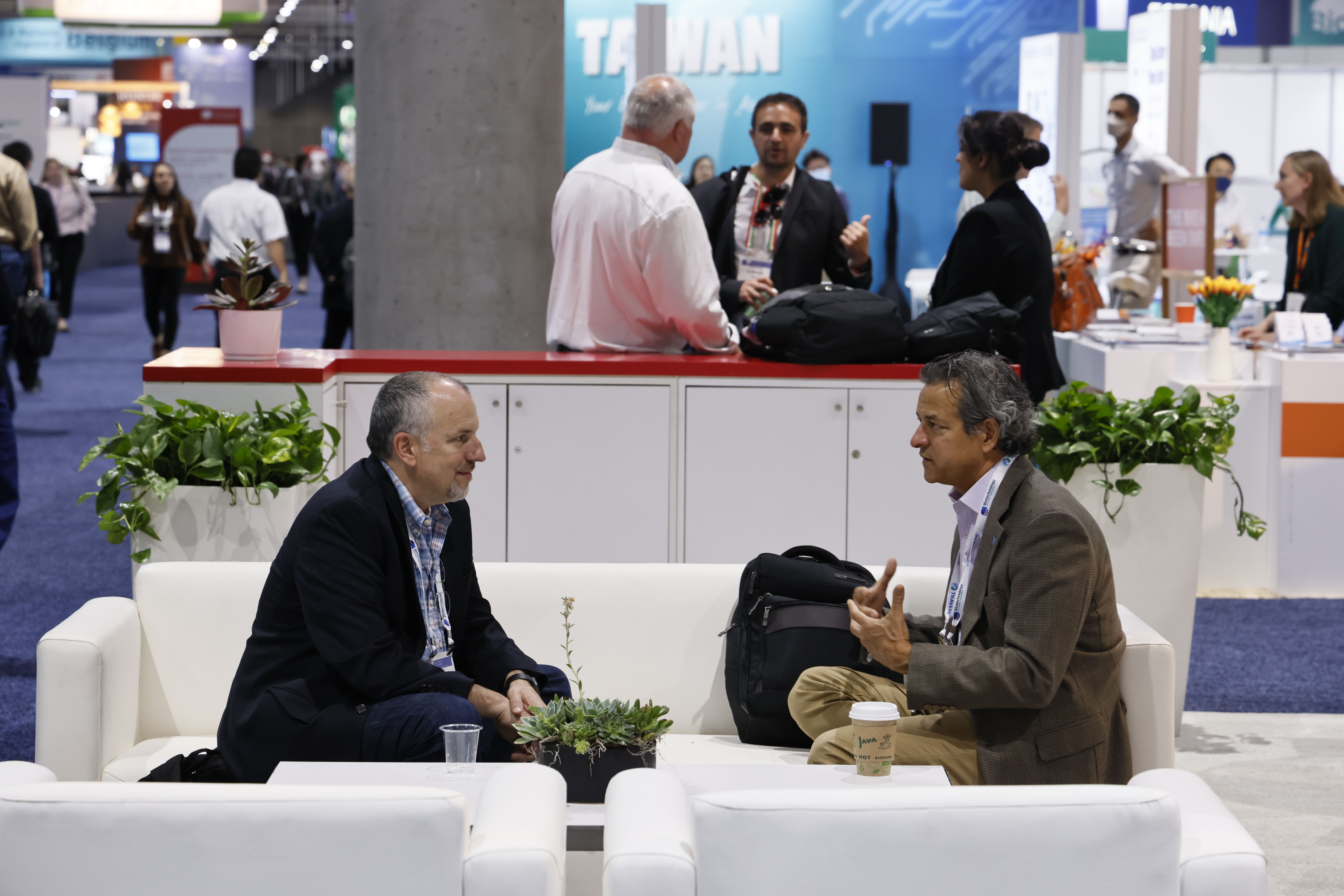
The BIO International Convention attracts 15,000+ biotechnology and pharma leaders for one week of intensive networking to discover new opportunities and promising partnerships. Position yourself for success at this year's event, June 3-6, in San Diego! BIO is where business and breakthroughs converge – and the BIO One-on-One Partnering™ system facilitates the connections that fuel our industry.
Attend this webinar to learn more about what’s happening at BIO 2024 and what the BIO One-on-One Partnering™ system can do for your business goals. Explore the program, networking opportunities, partnering system fundamentals, gain insight to best practices for partnering, and much more! For more information and to register for BIO 2024, please visit: convention.bio.org
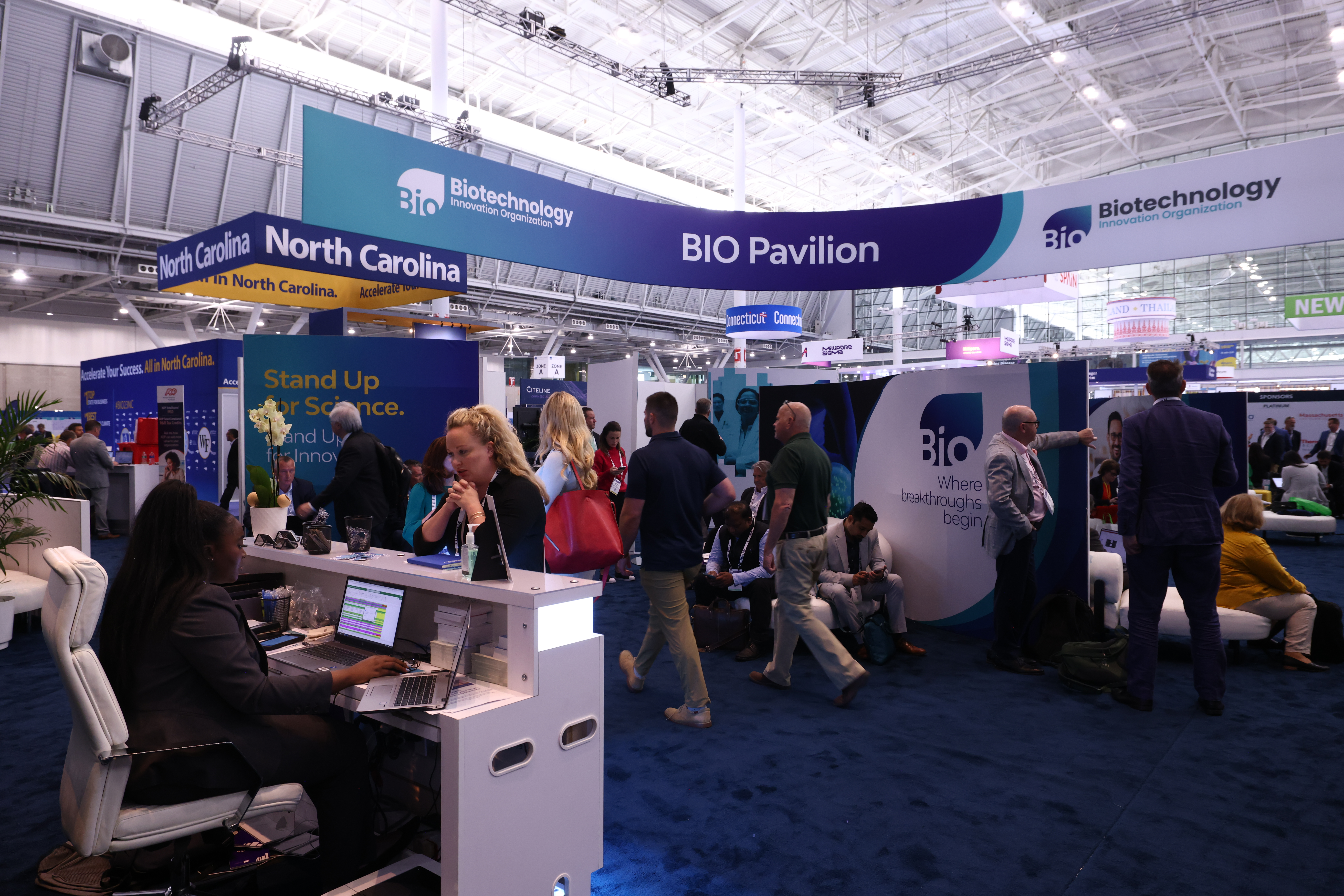
Join BIO staff as they walk exhibitors through the tools needed to plan for BIO International 2024!
The goal of this webinar is to provide our exhibitors with the resources to have an impactful presence in San Diego as well as provide additional details.
The following topics will be discussed:
- Exhibitor Dashboard
- Exhibitor Resources
- Exhibitor Partnering
- Important Dates and Deadlines
- Frequently Asked Questions (FAQs)

The FDA has established the Split Real-Time Application Review (STAR) pilot program. The purpose of this program is to shorten the time from the date of a complete submission to the action date, in allowing earlier patient access to therapies that address an unmet medical need.
In this webinar, FDA staff will give an overview of the program, including the eligibility criteria for the pilot, and will answer your questions about participating in the program.
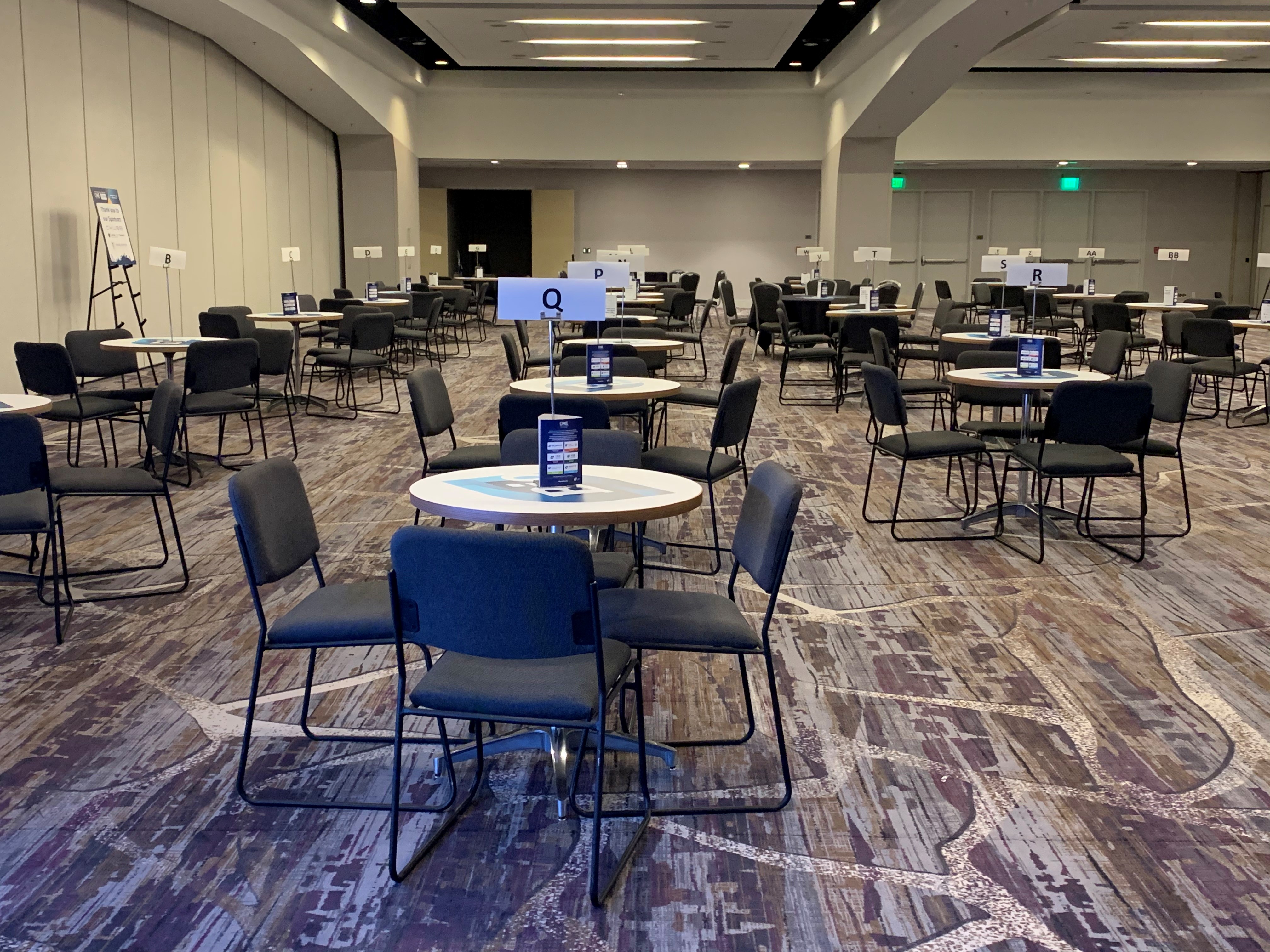
Announcements around and during JPM Week each January often create waves throughout the biotechnology ecosystem. View this Biotechnology Innovation Organization (BIO) webinar to learn what experienced dealmakers and market analysts found most relevant and influential from JPM Week to consider when planning your own capital formation and partnering priorities for 2024. The discussion covers developments affecting M&A trends, the IPO window, licensing trends, biotech AI, and investor sentiment.
This webinar will also preview the program for the BIO CEO & Investor Conference, February 26-27, and explain how BIO’s One-on-One Partnering during the event can help you make progress against your 2024 priorities.
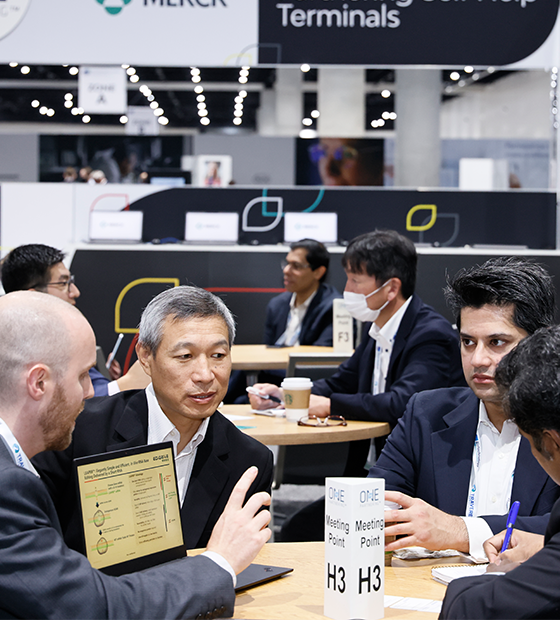
Want to learn more about events happening during JPM Week 2024 and how you can better navigate (and survive) it all?
View this webinar to get a grasp of all your options for networking and educational opportunities, hear from two panelists on how they approach this busy week, and start planning with BIO & Novateur's Event Guide to JPM 2024, a free mobile app. This webinar covers:
—Tips & tricks to make the most of JPM Week
—Receptions and other networking opportunities
—Conferences, presentations and other educational events
—Overview of BIO and Novateur Ventures’ JPM Week Events Guide mobile app
—BIO’s onsite meeting space in San Francisco and BIO Partnering at JPM Week

View this conversation highlighting how BIO member companies are strengthening food security and addressing climate change through biotechnology innovations in crop protection and efficient food production. Learn how regulation and policy can support agricultural innovation to protect our environment and our food supply.

Looking for an efficient and effective way to source new partnerships and manage your meetings for JPM Week? This webinar explains how BIO One-on-One Partnering™ can help. Learn about BIO’s onsite meeting space in San Francisco, tips and tricks for using the system, and how to schedule your meetings with different location options. Also, get a look at how you can stay in-the-know about networking and other opportunities during JPM Week.
For more information about BIO Partnering at JPM Week, please visit: https://www.bio.org/events/bio-partnering-jpm
This webinar covers the following:
- Preview of BIO’s onsite meeting space in San Francisco
-Partnering best practices & how to schedule your meetings
- Live demo of the partnering system & advanced features
- Intro to BIO and Novateur Ventures’ JPM Week Events Guide mobile app
- Q&A with the host
Quick Links:
- Copy of today’s slides: PowerPoint Presentation (bio.org)
- Registration rates & where to register: https://bpjw.bio.org/registration
- 2024 Participating companies: https://bpjw.bio.org/participating-companies
- 2024 Participating investors: https://bpjw.bio.org/bio-one-one-partnering/participating-investors
- Guide to JPM’24 mobile app for iPhone: https://apps.apple.com/mu/app/guide-to-jpm23/id1494244381
- Guide to JPM’24 mobile app for Android: https://play.google.com/store/apps/details?id=org.novateur.ConferenceGuide
- Submit your JPM Week event for our mobile app & Dec 12 webinar event list: https://forms.office.com/pages/responsepage.aspx?id=FmEqTcAdB0iptW1DmWAlb-7aiIadk1dGqhpdctNwLzRUM0pDVkYzQVlDTFJTQUJJMVpWTUVPSFUzSi4u
- Register for the Dec 12th JPM Networking Webinar: https://www.bio.org/webinars/raising-capital/bios-jpm-week-events-networking-preview



